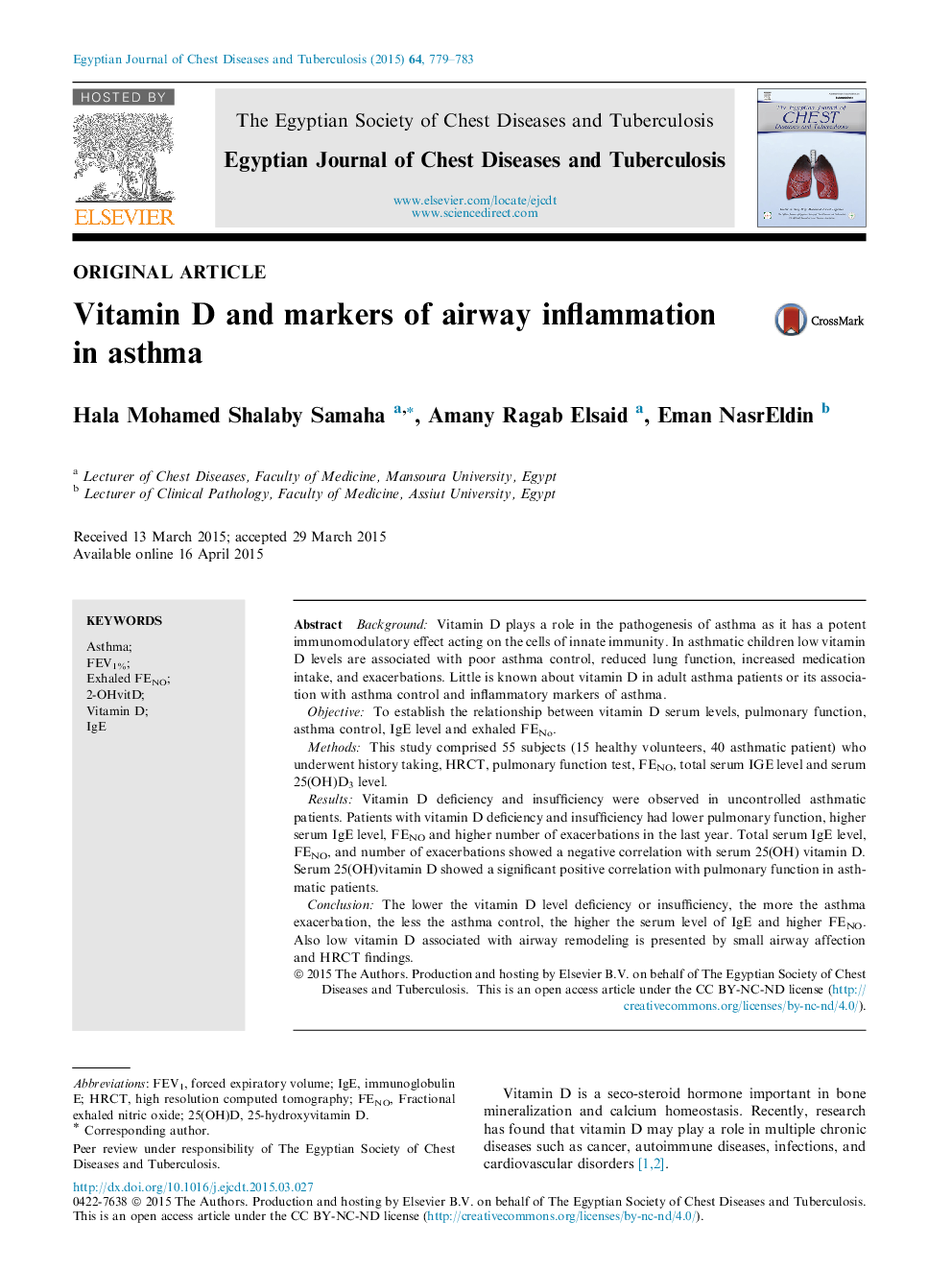| Article ID | Journal | Published Year | Pages | File Type |
|---|---|---|---|---|
| 3399940 | Egyptian Journal of Chest Diseases and Tuberculosis | 2015 | 5 Pages |
BackgroundVitamin D plays a role in the pathogenesis of asthma as it has a potent immunomodulatory effect acting on the cells of innate immunity. In asthmatic children low vitamin D levels are associated with poor asthma control, reduced lung function, increased medication intake, and exacerbations. Little is known about vitamin D in adult asthma patients or its association with asthma control and inflammatory markers of asthma.ObjectiveTo establish the relationship between vitamin D serum levels, pulmonary function, asthma control, IgE level and exhaled FENo.MethodsThis study comprised 55 subjects (15 healthy volunteers, 40 asthmatic patient) who underwent history taking, HRCT, pulmonary function test, FENO, total serum IGE level and serum 25(OH)D3 level.ResultsVitamin D deficiency and insufficiency were observed in uncontrolled asthmatic patients. Patients with vitamin D deficiency and insufficiency had lower pulmonary function, higher serum IgE level, FENO and higher number of exacerbations in the last year. Total serum IgE level, FENO, and number of exacerbations showed a negative correlation with serum 25(OH) vitamin D. Serum 25(OH)vitamin D showed a significant positive correlation with pulmonary function in asthmatic patients.ConclusionThe lower the vitamin D level deficiency or insufficiency, the more the asthma exacerbation, the less the asthma control, the higher the serum level of IgE and higher FENO. Also low vitamin D associated with airway remodeling is presented by small airway affection and HRCT findings.
